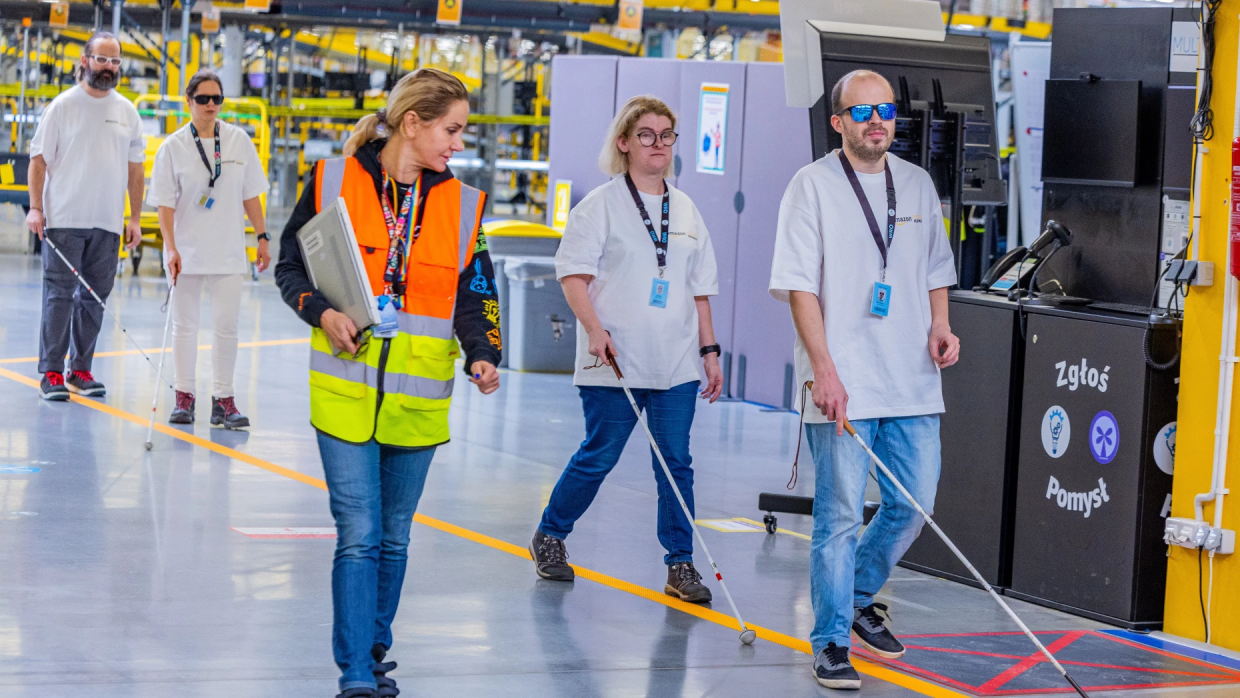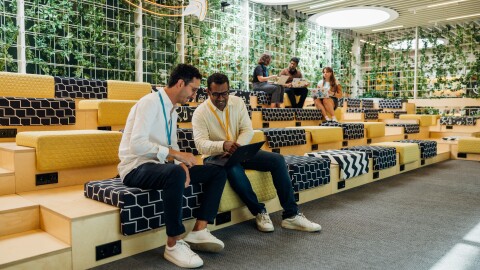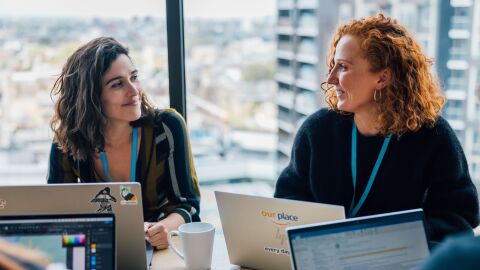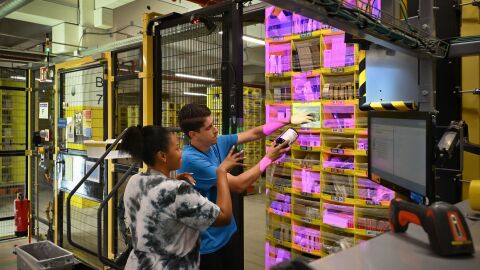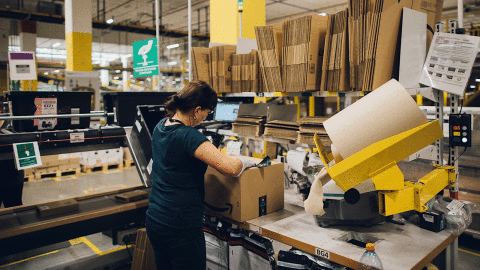It’s estimated that over 100,000 people in Poland are visually impaired, and most of them are not employed – with an employment rate hovering around 20%. We’ve stepped up to tackle this issue, having long-championed diversity and equal opportunities in the workplace.
HOMER is our first initiative of its kind in the EU and only the third worldwide. It was developed in partnership with the Provincial Government Office of Lower Silesia and the Wrocław University of Science and Technology.
The goal of the programme is to enable blind and visually impaired people to secure jobs in fulfilment centres (FCs), and the programme has already shown promising results, with five people successfully integrating into their new roles. The success of this initiative is set to increase to 50 positions in our FCs across Poland.
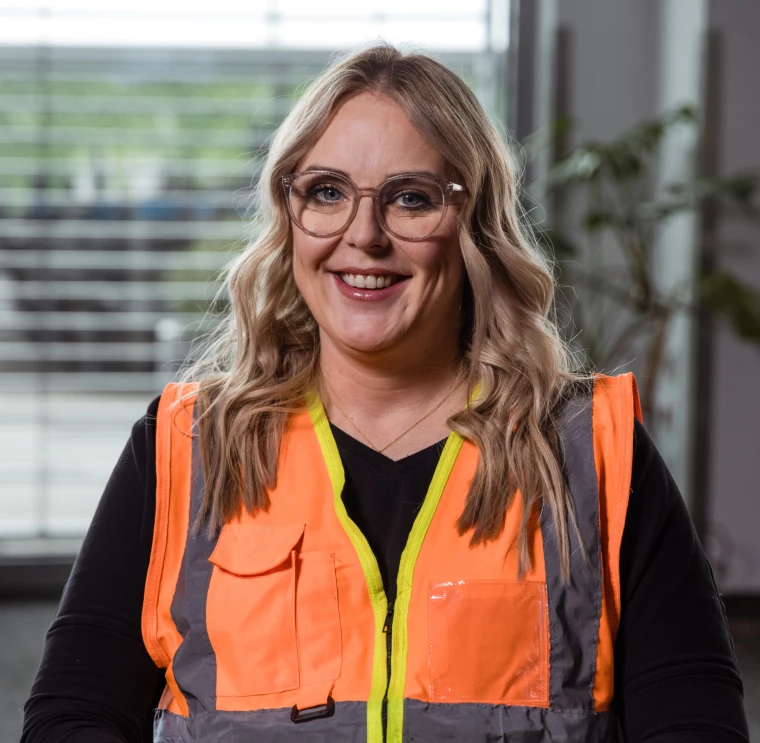
Currently, HOMER provides roles in packaging, receiving inventory, and manually sorting packages. We’re also exploring opportunities to add jobs for programme participants in other FCs. “We strive to ensure that our employees face no barriers in exploring their professional potential,” said Dominika Bąk-Majka, Senior Operations Manager at Amazon Poland and co-creator of the programme.
Feedback from the local government
The inspiration for HOMER came from our partnership with the provincial government office of Lower Silesia. Representatives from the office highlighted the urgent need for new and safe job opportunities for blind and visually impaired individuals in the region.
“We oversee the Lower Silesian special educational and training centre, which prepares individuals with disabilities for their careers. Ensuring our graduates can pursue professional careers and secure employment after graduation is crucial to us. We are thrilled that Amazon has taken the initiative with the HOMER programme,” said Krzysztof Maj, a member of the provincial board of Lower Silesia. “Professional activation of individuals with disabilities is essential. They possess the same, and sometimes even greater skills as those who aren’t impaired, that is why it’s imperative to provide accessible job opportunities that allow them to have fulfilling careers on an equal footing.”
Preparing our workplace for the programme
Implementing HOMER came with numerous challenges, including adapting the fulfilment centre in Bielany Wrocławskie to accommodate visually impaired employees. Consequently, the preparatory phase involved an engineer from the Wrocław University of Science and Technology, who is also visually impaired. As part of our partnership with the university, engineer Marek Tankielun tested solutions to adapt workstations to the needs of those with visual impairments. He also designed a communication pathway for moving around the fulfilment centre, conducted all necessary tests at workstations, and reviewed the online recruitment form to ensure it was compatible with the software for blind and partially sighted users.
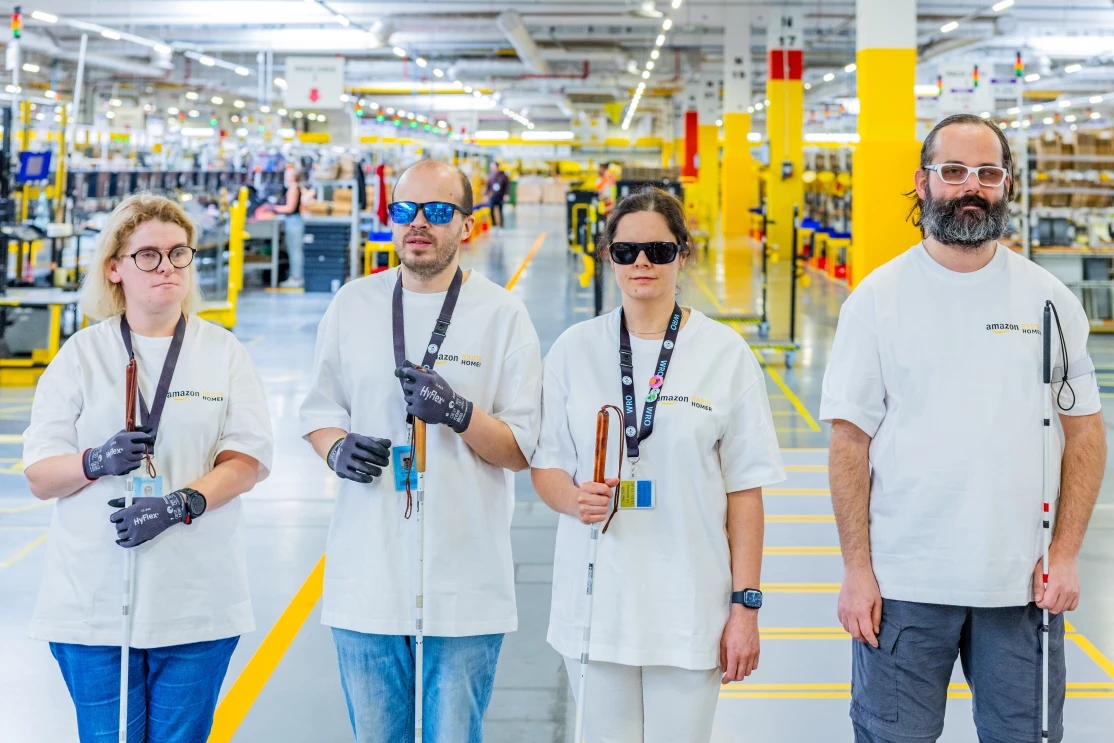
“My daily job is to consult accessibility projects for visually impaired individuals in public spaces. For the HOMER programme, the biggest challenge was making the space easy to navigate and free of obstacles,” said Marek. “What may seem trivial to a non-impaired individual, such as accessing a workstation or finding a seat in the employee cafeteria, is not that simple for someone with visual impairments. Appropriate infrastructure is essential to ensure complete independence. I know this first-hand, being part of this community myself.”
Challenging stereotypes
In Poland, visually impaired candidates often face professional exclusion due to the misconception that they are unable to perform most tasks. Our initiative breaks these stereotypes, demonstrating that blind and visually impaired individuals can work successfully in various fields.
In addition to HOMER, we have been running the MigaMY programme since 2020, offering 140 tailored job opportunities in our Polish FCs for deaf and hard-of-hearing individuals. Combined, both programmes can employ up to 190 visually and hearing-impaired people. We continue to foster a culture of equality, supporting all potentially excluded groups and emphasising diversity and integration at every organisational level. Programmes supporting women’s development and the Glamazon affinity group, which raises awareness about the LGBTQ+ community, are shining examples of this commitment.


